15 Technical SEO Factors You Can't Ignore in 2024
15 Technical SEO Factors You Can't Afford to Ignore in 2024
Think of your website as a digital storefront in Toronto. A stunning design (content) means nothing if customers can't find the door, get stuck in the entrance, or find the layout confusing. Technical SEO is the foundation—the architecture, plumbing, and signage that make your online presence functional, fast, and visible to search engines like Google.
Ignoring these factors can negate even the best content marketing efforts. This guide details the 15 non-negotiable technical SEO factors you must master in 2024.
1. Core Web Vitals: The User Experience Report Card
Google's Core Web Vitals measure real-world user experience and are direct ranking factors. Failing here can hurt your visibility.
·Largest Contentful Paint (LCP): Measures loading speed. Goal: < 2.5 seconds.
·First Input Delay (FID): Measures interactivity. Goal: < 100 milliseconds.
·Cumulative Layout Shift (CLS): Measures visual stability. Goal: < 0.1.
Actionable Tip: Use Google's PageSpeed Insights tool for a free report and prioritized fixes, starting with image optimization and removing render-blocking JavaScript.
2. Mobile-First Indexing: The Primary Blueprint
Google predominantly uses the mobile version of your site for indexing. A poor mobile experience directly harms your rankings for all users.
Actionable Tip: Use Google's Mobile-Friendly Test. Ensure touch targets are well-spaced, fonts are legible, and no horizontal scrolling is required.
3. Website Crawlability: Opening the Doors
If Googlebot can't crawl your site, it cannot be indexed. Common blockers include errors in your robots.txt file or accidental noindex tags.
Actionable Tip: In Google Search Console, use the "robots.txt Tester" and the "URL Inspection" tool to verify your key pages are crawlable and indexable.
4. Site Architecture & Internal Linking: The Logical Floor Plan
A clear, logical hierarchy helps users and bots find content. A siloed structure with descriptive URLs and strong internal links passes authority (link equity) throughout your site.
Actionable Tip: Implement a hub-and-spoke model: Create pillar pages for core topics (e.g., /seo-services/) and link to and from related cluster content (e.g., /technical-seo-guide/).
5. HTTPS/SSL: The Security Standard
HTTPS is a baseline ranking signal and essential for user trust. It encrypts data between the user's browser and your server.
Actionable Tip: Contact your hosting provider to install an SSL certificate (often free with Let's Encrypt). Ensure your entire site redirects from HTTP to HTTPS.
6. Indexation Control: The Inventory Manager
You must dictate what search engines index. Use noindex for thin or private pages and canonical tags (rel="canonical") to specify the preferred version of duplicate content.
Actionable Tip: Audit for duplicate content (e.g., product variants, session IDs) using a crawler like Screaming Frog and implement the correct tags.
7. XML Sitemap: The Site Directory
An XML sitemap is a file that lists your site's important pages, ensuring search engines can discover them efficiently.
Actionable Tip: Generate a dynamic sitemap (most CMS plugins do this) and submit it via Google Search Console. Keep it updated automatically.
8. Schema Markup: The Enhanced Labels
Schema.org structured data is code you add to your pages to provide explicit context (e.g., business info, FAQs, events). This can generate rich results in search, boosting click-through rates.
Actionable Tip: Start with LocalBusiness and FAQPage schema. Use Google's Rich Results Test to validate your markup.
9. Page Speed & Performance: Beyond Core Vitals
Overall speed impacts user satisfaction, conversions, and SEO. Tools like GTmetrix or WebPageTest provide deeper diagnostics.
Actionable Tip: Prioritize:
·Image Optimization: Compress and serve modern formats (WebP).
·Caching: Leverage browser and server-side caching.
·Code Minification: Minify CSS, JavaScript, and HTML files.
10. Website Security: Protecting Your Asset
A hacked site can be filled with spam, destroying rankings and trust. Security is a critical technical SEO factor.
Actionable Tip: Keep all software updated (CMS, plugins, themes), use strong passwords/2FA, and consider a Web Application Firewall (WAF).
11. 404 Errors & Broken Links: Fixing Dead Ends
Broken links frustrate users and waste "crawl budget"—the resources Google allocates to your site.
Actionable Tip: Use a crawler to find broken internal links and fix or redirect them. For broken external links, either update them or remove them.
12. Local Technical SEO: The Toronto Connection
For Toronto businesses, local technical setup is crucial. Consistency is key.
Actionable Tip:
·Create a dedicated Contact/Location page with your full NAP (Name, Address, Phone), embedded map, and LocalBusiness schema.
·Audit and correct your NAP consistency across all online directories.
13. Clean URL Structure: The Clear Signage
Readable URLs that include keywords are better for users and SEO. Avoid long strings of numbers or parameters.
Actionable Tip: Use a static, descriptive structure: yourdomain.com/primary-topic/secondary-topic/ (e.g., noble.ca/seo/toronto-technical-audit).
14. Pagination Handling: Managing Multi-Page Content
For paginated lists (e.g., blog archives), you must signal the relationship between pages to avoid duplicate content issues.
Actionable Tip: Implement rel="next" and rel="prev" tags, or use a "view all" page and canonicalize the paginated pages to it.
15. International SEO & Hreflang: Speaking to a Global City
To serve Toronto's multilingual audience or target other regions, use hreflang attributes to tell Google which language/regional version of a page to show.
Actionable Tip: Implement hreflang in your sitemap or HTTP header. Be meticulous—incorrect implementation can cause serious indexing issues.
The Noble Digital Advantage: Your Technical SEO Partner in Toronto
Technical SEO is a complex, ongoing discipline requiring expertise and specialized tools. It's the critical groundwork that determines whether your marketing efforts succeed or fail.
Don't let hidden technical issues sabotage your online growth.
Contact Noble Digital today for a Comprehensive Technical SEO Audit. We'll diagnose your site's health, build a robust technical foundation, and create a clear roadmap for you to dominate search in Toronto and beyond.
Partner with Noble Digital for a Flawless Technical Foundation
Mastering these Technical SEO factors is a complex, ongoing process. It requires expertise, dedicated tools, and a strategic approach. For business owners who need to focus on their operations—whether that's managing a fleet with AMT Truck, handling emergency calls with Tuber Towing, or optimizing SMS campaigns with Miobi—managing this in-house can be overwhelming.
Noble Digital specializes in conducting comprehensive technical SEO audits and implementations for Toronto businesses. We identify the hidden errors holding your site back and build a robust, fast, and search-engine-friendly foundation that allows your content to shine and your rankings to soar.
Don't let technical debt sink your online visibility. Contact Noble Digital today for a full technical SEO audit and let's future-proof your website for 2024 and beyond.
